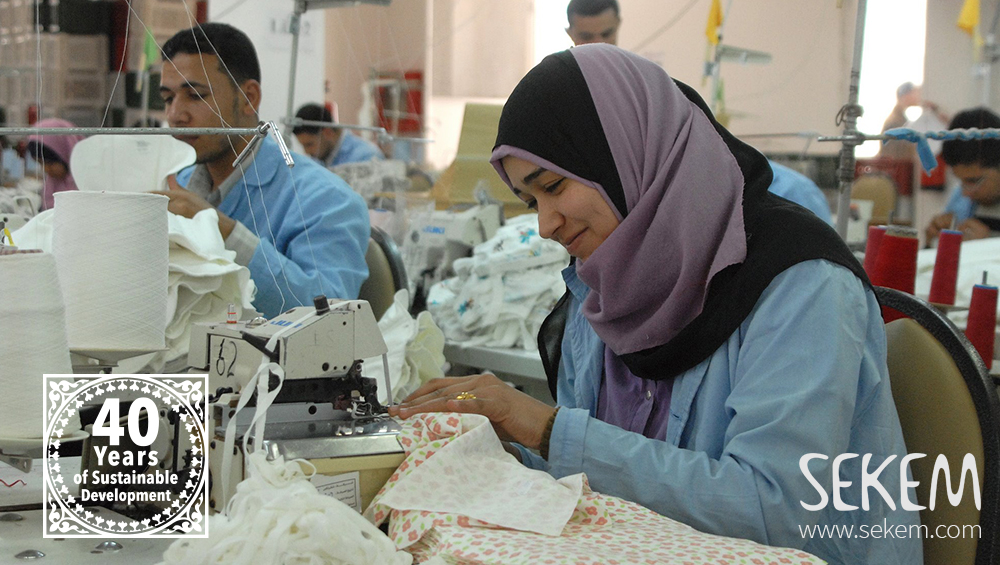Being poor means being less well nourished. It means having little access to information and health care – or no access at all. Thus, being poor also means having a higher risk of illness and disability. Foremost, being poor means being more likely to increase the own poverty, a vicious circle.
Extreme poverty is often defined in absolute terms of low income – less than US$2 a day as stated by the World Bank, for example. According to the Egypt Central Agency for Public Mobilization and Statistics (CAPMAS), more than 25 percent of the Egyptian population live below the poverty line (2014/2015).
In 1977, SEKEM was not only founded with the idea of sustainable development and giving back to the community, but also with the idea of fighting poverty. This matches the Sustainable Development Goal (SDG) 1: “End poverty in all its forms everywhere”. SEKEM prioritizes this goal by supporting its 1.700 employees as well as the contracted farmers with fair salaries. “Because of the inflation and unstable economic situation in the country, we updated the minimum salary for all our workers in the last year”, explains Sarah Abouleish, Chief Social Affairs Officer at SEKEM. SEKEM lives what the initiative calls an Economy of Love.

Higher Incomes, Guaranteed Markets, Better Work Opportunities
Providing a fair share for all spreads over SEKEMs whole supply chain. Compared to other contracted farmers, SEKEMs farmers receive higher incomes. This confirmed a 2015 published Impact Study coordinated by Oikocredit International. The study also attests that SEKEM farmers benefit from assured markets as well as from better work opportunities in adjacent villages and towns – particularly important in both poor and structurally weak regions as well as labor-surplus areas.
These impacts reach out to the more than 700 farmers in Egypt who shifted from conventional to biodynamic agriculture and to a pool of 90 suppliers that subcontract approximately 400 small-holding farmers as well as to farm laborers and the families of all these groups.
Social welfare
SEKEM cares about its employee’s families generally. Hence, SEKEM offers a solidarity fund to its employees and particularly supports people with lower salaries: A special bonus is paid on the occasion of national holidays four times a year. “Additionally, the social fund includes the financial assistance in family cases of illness, loss of lives, marriages or births”, Sarah Abouleish continues.
SEKEM knows: Education can break the vicious circle of poverty. If SEKEM employees enroll their children in SEKEM School, they can get a reduction of the school fees according to their salaries. Moreover, SEKEM provides free courses for illiterate employees. They study twice a week until they are ready to take the exam to receive an official certificate proving that they can read and write.
40 years ago, SEKEM was founded with the idea of sustainable development and building of a prosperous future for Egypt and the world. For SEKEM, sustainable development is not a fancy topic to talk about, but the core business. SEKEM commits itself to the “2030 Agenda for Sustainable Development” and works to fulfill all 17 SDGs. SEKEM measures its holistic concept with the Sustainability Flower. The flower represents a management, assessment and communication tool symbolizing the concept of sustainable development in its four dimensions: economic life, societal life, cultural life and ecology.
Christina Büns
SEKEM is Committed to all Sustainability Goals of the United Nations
Learn more about the SEKEM Impact Evaluation Study
What is SEKEMs Economy of Love?

